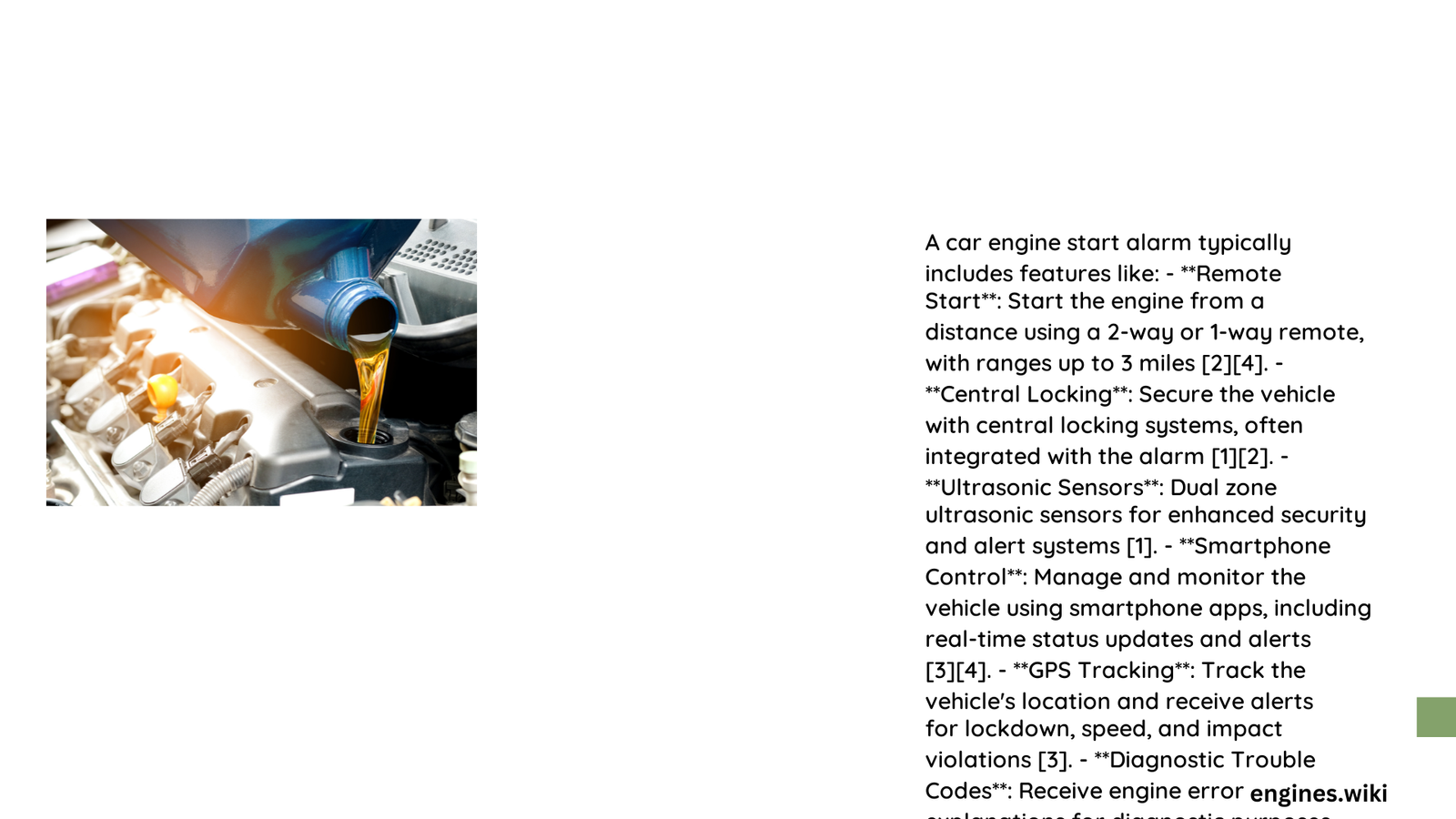Car engine start alarm systems represent a critical technological innovation in vehicle security, providing comprehensive protection against theft and unauthorized access. These sophisticated electronic devices integrate advanced sensors, remote communication technologies, and intelligent monitoring capabilities to safeguard vehicles through multiple layers of protection. Modern car engine start alarm systems leverage cutting-edge technologies like smartphone integration, GPS tracking, and multi-sensor detection to offer vehicle owners unprecedented peace of mind and security.
What Are Car Engine Start Alarm Systems?
Car engine start alarm systems are advanced electronic security devices designed to protect vehicles from potential theft and unauthorized use. These systems combine multiple security features to monitor and defend against potential intrusions.
Key Components of Car Engine Start Alarm
| Component | Function | Technology |
|---|---|---|
| Impact Sensors | Detect Physical Disturbances | Dual-Zone Shock Detection |
| Remote Transmitters | User Control and Notification | Encrypted RF Communication |
| Immobilization Circuits | Prevent Unauthorized Engine Start | Electronic Starter Interrupt |
| Siren/Alert Mechanism | Audible Warning | 105+ Decibel Sound Projection |
How Do Car Engine Start Alarm Systems Work?

Car engine start alarm systems operate through a complex network of sensors and electronic circuits that continuously monitor vehicle status. When unauthorized access is detected, the system triggers multiple defensive mechanisms:
- Sensor Activation
- Shock/impact sensors detect physical disturbances
- Glass break sensors monitor window integrity
-
Proximity sensors track unauthorized approach
-
Alert Mechanisms
- Loud siren activation (105+ decibels)
- Flashing vehicle lights
-
Remote notification to owner’s smartphone
-
Immobilization Protocols
- Interrupt engine start sequence
- Lock steering mechanisms
- Disable electrical systems
What Features Should You Consider?
When selecting a car engine start alarm system, consider these critical features:
- Range of Remote Control
- Minimum 1-mile communication radius
- Smartphone app integration
-
Two-way confirmation alerts
-
Sensor Sophistication
- Multi-zone impact detection
- Nuisance prevention technology
- Advanced motion tracking
Installation Considerations
Professional vs. DIY Installation
| Installation Type | Estimated Cost | Complexity | Recommended For |
|---|---|---|---|
| Professional | $200-$500 | Low | Newer Vehicles |
| DIY | $50-$200 | High | Experienced Enthusiasts |
Troubleshooting Common Issues
Potential Alarm System Problems
- Intermittent sensor activation
- False alarm triggers
- Remote communication failures
- Battery drainage issues
Cost Analysis
The average car engine start alarm system ranges between $200-$600, depending on features and complexity. Additional installation costs typically range from $100-$300.
Recommended Systems
- Avital 5105L
- Dual-zone impact sensing
- SmartStart compatibility
-
Advanced starter interrupt
-
Compustar CSXP9913-AS
- 4-in-1 security sensor
- Smartphone control
- 3-mile range communication
Final Recommendations
Choose a car engine start alarm system that balances sophisticated technology, reliable performance, and budget-friendly pricing. Prioritize systems with comprehensive sensor networks, smartphone integration, and proven track records of vehicle protection.
Maintenance Tips
- Regular battery checks
- Annual sensor calibration
- Professional system diagnostics
Reference:
– Avital Security Systems
– Compustar Official Website
– VIPER Security Systems
